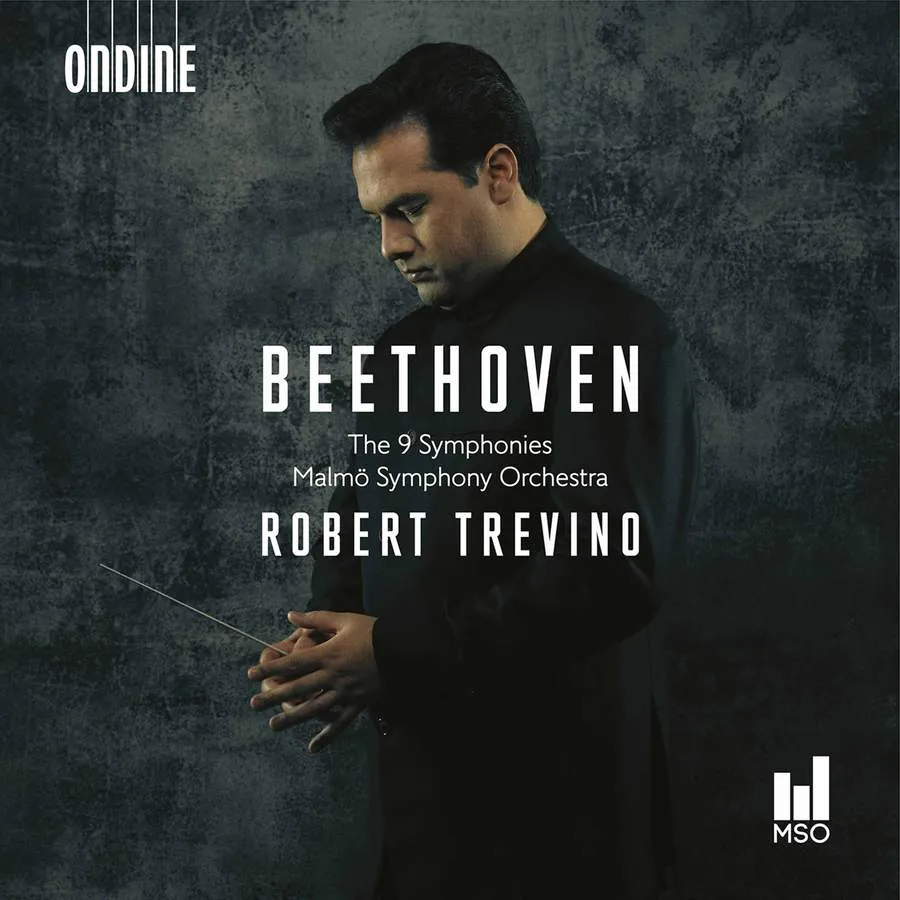
Beethoven Symphonies Nos 1-9 Kate Royal (soprano), Christine Rice (mezzo-soprano), Tumoas Katajala (tenor), Derek Welton (bass-baritone); Malmö Symphony Orchestra and Chorus/Robert Trevino Ondine ODE1348-5Q (CD/SACD) 349:23 mins (5 discs)
With more than a hundred versions of Beethoven’s cycle of symphonies now available on CD, DVD and/or online, any newcomer has to offer something special to justify their place in the vast range of interpretations. This new and reasonably priced set introduced me both to the orchestra, the Malmö Symphony, and its new conductor, the Mexican-American Robert Trevino. In the accompanying booklet Trevino is highly articulate about his approach to the symphonies. It is eclectic, and he genuinely seems to find merit in such disparate performances as those by Karajan and those of the historically-informed school, which has taken over in the last 30 years or so.
The opening of the First Symphony immediately shows the impact on Trevino of historically-informed performance. After the opening chords there’s a brisker tempo than you would find in any performance before the 1970s, with the exception of such oddballs as Scherchen and Leibowitz. The orchestral balance is often heavily in favour of the winds, especially the woodwinds, often at the expense of the strings. My only criticism of the set as a whole is this balance, or as I sometimes felt, imbalance. I was surprised to see in the booklet that the string sections are as large as usual, and the wind sections no larger. One needn’t be a fan of Bruno Walter, let alone Karajan, to enjoy a warm foundation of strings and a blending with the winds rather than reversing that priority.
With Trevino the balance is reversed throughout until the Ninth, which receives a performance strikingly unlike the other symphonies, but one that treats it as a great statement, in the old tradition, though Trevino denies that. For me the symphony which suffers most is the Eroica, which seems to be aligned with the first two rather than with the later symphonies. It seems almost lightweight, whereas all the others come across as the masterpieces one knows them to be, the Seventh in particular; the last movement really does seem inspiredly mad, more than any performance I have ever heard. The Eighth has the mischief and the lurking menace which it rarely receives. Perhaps I just got used to Trevino’s characteristic approach as I listened in sequence, but I must say that my enjoyment grew with successive symphonies, though there are two that I have heard so often that I can no longer respond to them.
All told, this set is very well worth having, and in excellent sound.
Michael Tanner